All Stories
-
 Quantum Physics
Quantum PhysicsGoogle’s quantum computer speeds up, but practical use is unclear
Google’s D-Wave quantum computer is getting faster, but it’s still unclear whether it will ever outperform regular computers at completing useful tasks.
By Andrew Grant -
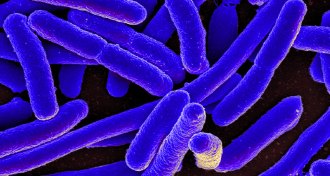 Life
LifeMicrobes show up on schedule after death
Microbes in the soil beneath dead bodies offer forensic clues for time and place of death.
By Meghan Rosen -
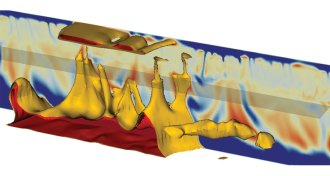 Earth
EarthGooey rock in mantle thickens 1,000 kilometers down
Gravitational tugs provide an unprecedented peek into the structure of Earth’s mantle and reveal a sudden increase in viscosity roughly 1,000 kilometers below ground.
-
 Chemistry
ChemistryElusive chemical reaction transition state captured
A new method provides a detailed look at the elusive transition state.
-
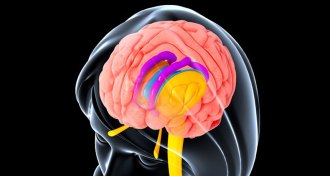 Neuroscience
NeuroscienceBrain shapes come from mom and dad
By linking genes to brain shapes, scientists have a new way to study how the brain works.
-
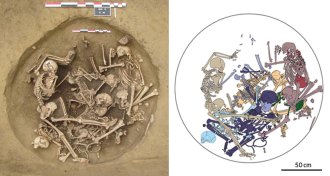 Archaeology
Archaeology6,000-year-old skeletons in French pit came from victims of violence
Human bones in a French pit recall lethal conflicts and limb lopping 6,000 years ago.
By Bruce Bower -
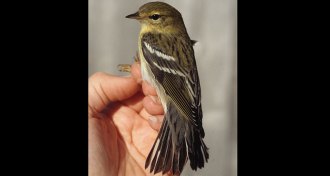 Animals
AnimalsSome warblers make their long winter migration even longer
Blackpoll warblers in western North America head east to fatten up before their transoceanic migration.
-
 Animals
AnimalsPlayful pups conceived via in vitro fertilization for the first time
Scientists have solved the mystery of how to perform in vitro fertilization in dogs, which could help rid canines of heritable diseases.
By Meghan Rosen -
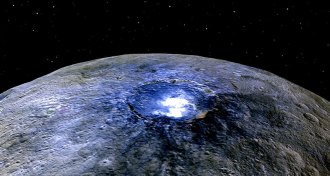 Planetary Science
Planetary ScienceSalty source of Ceres’ mysterious bright spots found
Bright spots on Ceres contain salts from a possible subsurface layer of ice while ammonia-rich minerals hint at building blocks incorporated from the far outer solar system.
-
 Genetics
GeneticsLiberia’s Ebola outbreak largely traced to one source
Ebola’s spread and evolution in Liberia echoes patterns seen in Sierra Leone.
-
 Health & Medicine
Health & MedicineIron helps growing bodies, but could too much do harm?
Iron fortification has been a public health victory in the fight against childhood anemia. But too much iron may be a cause for concern, scientists propose.
-
 Climate
ClimateGlobal carbon emissions fell in 2015, despite economic growth
Society’s carbon footprint fell slightly in 2015, largely due to decrease coal consumption in China, researchers report.